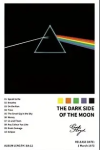What specifics are necessary in an EULA to enforce fair legal protection that aren't covered y existing copyright?
Trademark, copyright, and EULAs do cover some of the same stuff, however there are also differences. Funny anecdote time: a lot of physical things have EULA-like language built into them. I'll touch on a few examples as I reply to your question. Also consider, fair legal protection has to exist for both the consumer and the dev / publisher.
Y'all ok with another long reply?

This is what happens when you don't have a job, lol!
First, the EULA isn't just about protecting the software dev shop, there are multiple parts in there which also protect the customer. The big parts of the EULA are typically things like what and how data is (or isn't) collected, how the software is to be used or not used, how to limit liabilities of the software developer / publisher, and how any legal disputes will be handled (in terms of location of jurisdiction.) They might also include online integration details,, including how updates might be sent, and how access to the software might be revoked, and what expectations a consumer might have of their online experience. Every one of these are things which wouldn't be directly covered by a copyright, so EULA is going to still be a thing. Realistically, a EULA could probably termed as a slightly more advanced Terms of Use agreement, because they DO cover most of the same things.
Data collection: pretty much any app which receives digital updates will end up collecting some quantity of data. Legally, the software dev / publisher / whoever needs to disclose what they're collecting, how they collect it, and who they allow to see it. I'm sure they'd rather simply NOT tell you any of this, fortunately laws have changed in favor of the consumer in that space. GDPR and CPRA to the rescue!! If you find the app is collecting data which is not specifically called out OR they're handling the data in a way not clearly defined by the EULA, then these new laws make it a lot easier to really hammer a badly behaved software publisher. Regardless, the software needs to notify you of of this data privacy stuff, and that's not in Copyright.
How the software should or shouldn't be used, essentially the Fitness for Use declaration, outlines the intent and to some degree the warranty of the software to deliver on its indended use case -- and to declare limits on what it should not be used for. This is easier to think about in business terms; Excel spreadsheets
can be used for tracking all financial records of a company, but Microsoft isn't delivering a financial management package -- they're delivering a spreadsheet application. Microsoft can certainly be held liable for failures in terms of spreadsheet application things: miscalculations, formatting errors, problems where the Excel app eats your entire harddrive and sends a million full-black pages to your printer. They cannot be reasonably held liable for the entire financial collapse of your empire because you decided to use Excel and a shitload of VBA and macros and formulas to hand-create your own financial planning system instead of a proper financial management application. This isn't covered by Copyright, although again you might be able to argue it can be part of a Terms of Use agreement.
Limits of Liabilities is a curious one. Legally, the software dev can write whatever they want in here, usually it's the absurd "NO matter what our software does, there are no warranties expressed or implied and we're not liable for ANY losses, ever!!" As much as we all hate that stupid language, I can say from direct experience those statements of zero liability often collapse during a lawsuit. Despite this, the shitty language about no warranties and no liability are ABSOLUTELY in the software developer's best interest to state and "make you" agree to. Why even write such a thing then? Because if they make no attempt to limit their liabilities, then legally defending why they
shouldn't be held liable becomes radically more difficult. It's akin to the "WARNING! THIS CONTAINS NUTS!" label on a jar of peanut butter. Yeah most folks are going to say it's stupid, yet there have been successful lawsuits where someone died of anaphylactic shock from eating peanut butter without somehow realizing it contained nuts. Everyone hates the legalese, we're all required to deal with it regardless. This information isn't covered by copyright.
Location of legal Jurisdiction and legal dispute: when it's lawsuit time, having a statement of jurisdiction matters for so many reasons. Not so much if you vs the company are in the same country, but it gets a lot crazier when you cross international borders. I think in order to sell software in the UK, EU, Australia, Canada, the US, and a few other places, you're mandated to include this jurisdiction notification as part of the EULA. Further, any statements or claims of methods of legal dispute CAN be legally binding, but just like the limits of liabilty statement earlier, they aren't always binding. And just like before, the EULA needs to make the statement regardless, otherwise it opens them up to potentially more liability. This information isn't covered by copyright.
Online things: man, this is huge. What is the extent of the dev/publisher's liabilities in online performance? Can you sue them for showing that you were dead last in an online PvP game which another player Twitch-streamed the game and ten thousand people saw you suck? Probably not, but it has to be called out that it might happen. Can you sue for a million dollars because you lost a ranked match which cost you a world ranking score? Probably not, but it has to be called out. Can you sue them for not enough servers to be able to even join an online game? Maybe, but can you get back more than you paid for the game itself? Even then, maybe, if it involves the cost of your legal fees to get them to remunerate you. What about seeing bad words in chat, can you sue for that, especially if a minor somehow saw it?
Let's get to the worst of it: license revocation. What about YOU being the one who was using bad words in chat, and you got booted even if only for a few days? Can you sue for lost time? What if you act so badly over a course of time that you're no longer allowed to be online at all, thereby limiting the publisher's exposure to OTHER lawsuits about YOUR behavior? Can you sue for not being allowed to be a troll? You paid for the software, so why can't you say anti-semitic, or anti-women, or anti-gay, or anti-black commentary on a platform you're funding?!? (/Elon) What about the epically shitty anti-cheat software that root-kits your OS? If you remove that software, are you allowed to play the game? And if not, are you due a refund? There's a lot of gray area I just covered, but the boilerplate language has to exist or else it becomes difficult to defend against, even if it ends up being language that isn't upheld in court.
There's plenty to hate about licensing and the whole "you don't own it" stuff. Yeah, if I buy a fully local game and it gets disabled after a handful of years, even though I have zero dependency on their cloud shit? FUCK YOU. I think that should be legally protected from NEVER HAPPENING. There's plenty to hate in the licensing space, but completely removing EULAs isn't a reasonable ask given the world we live in today -- and I mean that in both directions, because consumers do some really dumb shit and, despite it being easy to make all publishers and software devs the "bad guys", they still deserve some quantity of protection. IF for no other reason than: think of tiny indie devs getting sued for some of the dumb online shit I mentioned earlier. You didn't have a EULA to lay down that first coat of legally non-binding language? Welp, good luck with the incoming fight. It sucks that we have to think this way, but we DO have to think this way.



